This article needs additional citations for verification .(September 2019) |
Cordelia Cameron (d. after 1844), was an Australian stage actor and theatre manager. She was the first woman theater manager in Australia. [1]
This article needs additional citations for verification .(September 2019) |
Cordelia Cameron (d. after 1844), was an Australian stage actor and theatre manager. She was the first woman theater manager in Australia. [1]
Cordelia Cameron was married to her colleague, the actor-manager Samson Cameron, and managed a travelling theater company with him. The Camerons arrived with their company of actors to Tasmania in 1833. They introduced professional theatre in Tasmania with their performances in Hobart in December 1833 and in Launceston beginning June 1834, only one year after the introduction of professional theatre in Sydney in the Australian mainland. [2] They also sent for a number of professional actors from England, many of whom came to play an important part in the history of Australian theatre, such as Anne Clarke (theatre manager).
Samson Cameron made frequent trips to Sydney in an (ultimately unsuccessful) attempt to establish a theatre there, Cordelia Cameron was often left in charge of his business in Tasmania: in 1834, she became the first woman theatre manager in Tasmania and Australia when she managed their theatre in Launceston during her husband's stay in Sydney, although she did so as his proxy rather than in her own name.
While Samson Cameron came to be known foremost for his work as theatre manager, Cordelia Cameron was highly regarded in contemporary Australia for her ability onstage and was seen as a role model by many contemporary actresses, who imitated many of her stage mannerisms. [3]
The Camerons were eventually no longer able to compete against the growing competition in Tasmania, and left the island in 1844.
The history of Tasmania begins at the end of the most recent ice age when it is believed that the island was joined to the Australian mainland. Little is known of the human history of the island until the British colonisation in the 19th century.

Sigrid Madeline Thornton is an Australian film and television actress. Her television work includes Prisoner (1979–80), All the Rivers Run (1983), SeaChange (1998–2019) and Wentworth (2016–2018). She also starred in the American Western series Paradise (1988–91). Her film appearances include Snapshot (1979), The Man from Snowy River (1982), Street Hero (1984) and Face to Face (2011). She won the AACTA Award for Best Guest or Supporting Actress in a Television Drama for the 2015 miniseries Peter Allen: Not the Boy Next Door.

Nellie Stewart, born Eleanor Stewart Towzey was an Australian actress and singer, known as "Our Nell" and "Sweet Nell".
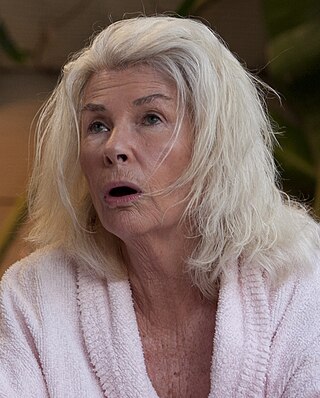
Robyn Anne Nevin is an Australian actress, director, and stage producer, recognised with the Sidney Myer Performing Arts Awards and the JC Williamson Award at the Helpmann Awards for her outstanding contributions to Australian theatre performance art. Former head of both the Queensland Theatre Company and the Sydney Theatre Company, she has directed more than 30 productions and acted in more than 80 plays, collaborating with internationally renowned artists, including Richard Wherrett, Simon Phillips, Geoffrey Rush, Julie Andrews, Aubrey Mellor, Jennifer Flowers, Cate Blanchett and Lee Lewis.

Alfred Rolfe, real name Alfred Roker, was an Australian stage and film director and actor, best known for being the son-in-law of the celebrated actor-manager Alfred Dampier, with whom he appeared frequently on stage, and for his prolific output as a director during Australia's silent era, including Captain Midnight, the Bush King (1911), Captain Starlight, or Gentleman of the Road (1911) and The Hero of the Dardanelles (1915). Only one of his films as director survives today.
The Life of Rufus Dawes is a 1911 Australian silent film based on Alfred Dampier's stage adaptation of the 1874 novel For the Term of His Natural Life produced by Charles Cozens Spencer.
Royal Admiral was a 414-ton timber three-masted barque, built at King's Lynn, England in 1828 and used as a merchant ship. Royal Admiral first served for trade to India. She subsequently sailed to Australia on four occasions carrying convicts, from Portsmouth to Port Jackson in 1830, from Dublin to Port Jackson in 1833 and 1834, and from Woolwich to Hobart Town in 1842.
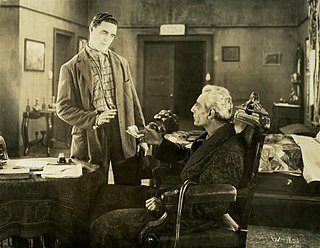
Mario Majeroni (1870–1931) was an Italian-born American playwright and stage and film actor.
Anne Clarke née Remans, was a pioneering actor, singer and theatre manager in Tasmania, Australia, significant as the first woman to manage an Australian theatre, being director of the Theatre Royal, Hobart, in 1840–1847.
Theodosia Stirling or Theodosia Yates Stirling is a name that has been attached to the contralto born Theodosia Yates, who had a considerable career on the Australian stage as, successively, "Mrs Stirling", "Mrs Guerin", and "Mrs Stewart". She is perhaps best known as the mother of Nellie Stewart.
Dinah Rudelhoff, was an Australian stage actor and theatre manager. She was one of the first female theatre managers in Australia: the second one to manage a theatre after Cordelia Cameron.
Jane Elizabeth "Eliza" Thomson (1827–1901), was an Australian stage actor and dancer.
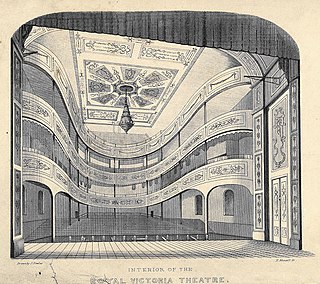
The Royal Victoria Theatre, often referred to as the Victoria Theatre or The Old Vic, was a theatre in Sydney, Australia, the first large theatre in the city. It opened in 1838; operas, plays, pantomimes and other events were held, and leading entertainers performed at the theatre. It was destroyed by fire in 1880.
Catherine Duncan was an Australian documentary filmmaker, actor, playwright, film researcher, script writer, film critic, archivist, and collagist. She is most well known for her work in radio broadcasts and short documentary films.
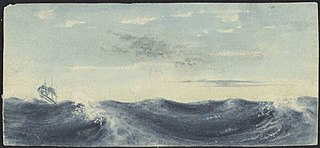
Africaine, was a barque launched in 1831 at Jarrow on the River Tyne in England. In 1836 she carried immigrants as part of the First Fleet of South Australia. She was wrecked on 23 September 1843.
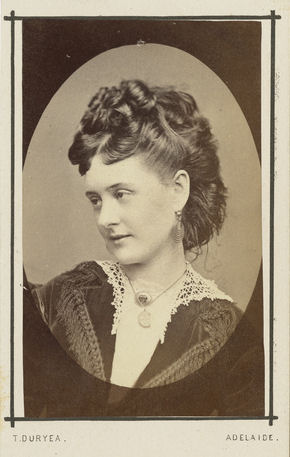
Hattie Shepparde was an Australian actress who during her short career gained a growing reputation in her native land where she was highly regarded for ‘her intelligence, her ease, the grace of her manner and her thorough devotion to her art’. She died aged 28 after childbirth.
William Henry Breton was a lieutenant in the Royal Navy who wrote the memoirs Excursions in New South Wales, Western Australia and Van Dieman's Land, during the years 1830, 1831,1832 and 1833, first published in 1833 and Scandinavian Sketches, or, A Tour in Norway, published in 1835. The books resulted from private visits to Australia, or New Holland as it was then known, in 1829-30 and 1832-33 and to Norway, Sweden and Russia in 1834.
The Howson family was a show-business dynasty founded in Australia, several of whose members went on to further success in America, London and Europe.
Anne Godfrey-Smith was an Australian poet, theatre director and women's activist.
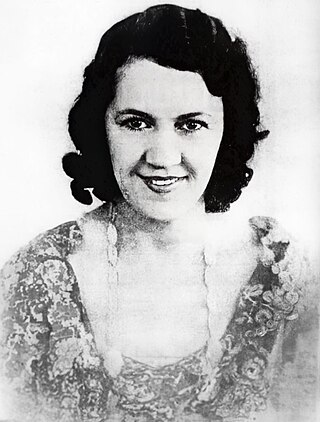
Ellen "Nellie" Odelle Bramley was an Australian stage actress who gained prominence during the early 20th century as a leading actress on stage and opened the Palace Theatre, Melbourne around 1914. Bramley was the first female Australian to establish her own theatre company in 1922, named after herself and which toured all of Australia, as well as New Zealand and Tasmania. Her earlier years touring New Zealand and Tasmania were successful, with sell-out performances in Launceston, Tasmania where at the time, she was the youngest star to have ever visited the city.